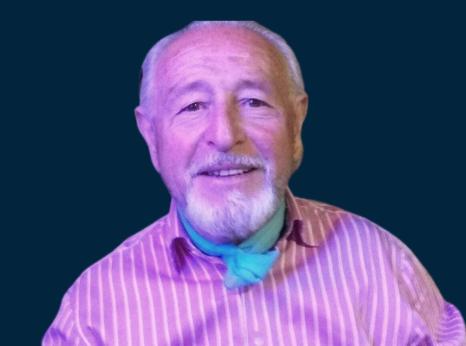Russia: Spanish Citizen Held Incommunicado

Mariano García Calatayud, a 75-year-old (as of April 2023) Spanish citizen. He had been working in Ukraine as a volunteer since 2014, delivering humanitarian aid to war-affected children. He remained in Kherson after Russian forces occupied the city in February 2022.
Mariano García Calatayud went missing in Kherson on 19 March 2022, after joining a peaceful protest against the Russian occupation. There were grounds to believe that, like hundreds of other civilians detained by the occupying Russian forces, he was transferred to the Russian-occupied Crimea and secretly placed in a detention centre. No official information was disclosed as to his fate and whereabouts. According to unofficial reports, such as information from former prisoners or messages passed on by fellow detainees in possession of Russian passports who were allowed visits by their lawyers, he was held in the pretrial detention centre No. 1 (SIZO-1) Simferopol until April 2023. According to Mariano García Calatayud’s lawyer, he was later moved to the newly established pretrial detention centre No. 2 (SIZO-2) in Simferopol. This detention centre was reportedly built to house the numerous detainees from the territories occupied by Russia after its full-scale invasion of Ukraine on 24 February 2022.
Some individuals recently released from Russian detention (such releases are rare, with some becoming possible due to prisoner exchange or for other reasons) have reported that they had seen Mariano García Calatayud in SIZOs in Simferopol and witnessed his injuries, including those caused by the use of electric shocks, dog bite and other.
Secret detention is unlawful and enforced disappearance is a crime under international law. The forcibly disappeared person is placed outside the protection of the law, which impedes their recourse to legal remedies and guarantees of protection and places them in a situation of complete defencelessness. This in turn makes them vulnerable to other human rights violations, such as torture or even killing. These concerns are entirely consistent with the reported human rights violations suffered by Mariano García Calatayud and countless other prisoners who forcibly disappeared in Russian-occupied Ukraine and were reportedly held by the Russian authorities in unacknowledged detention. They are not officially charged with any crime, have no procedural status within any criminal or administrative proceedings, and have no legal status, which places them outside of protection by any law (be it Russian which Russia unlawfully insists on applying in Crimea, or Ukrainian law which should apply in the occupied territories under international humanitarian law). The secret prisoners also include individuals who failed to pass so-called “filtration”, the abusive and humiliating screening process, a shocking violation of international human rights and humanitarian law. Such human rights violations must stop, and all those responsible be brought to account in fair trial proceedings.
There are no reliable figures as to how many civilians the occupying Russian forces have detained in the Ukrainian territories they presently hold or previously had under their control. Estimates are in the thousands, including hundreds of those who are held in detention centres in Crimea, the territory which Russia has controlled since its occupation in 2014. One of the main reasons for this is their unacknowledged detention and subsequent incommunicado detention, which amounts to enforced disappearance. Amnesty International has documented the wide use of enforced disappearance by Russian law enforcement agencies, including in Russia and in circumstances unrelated to Russia’s war in Ukraine.